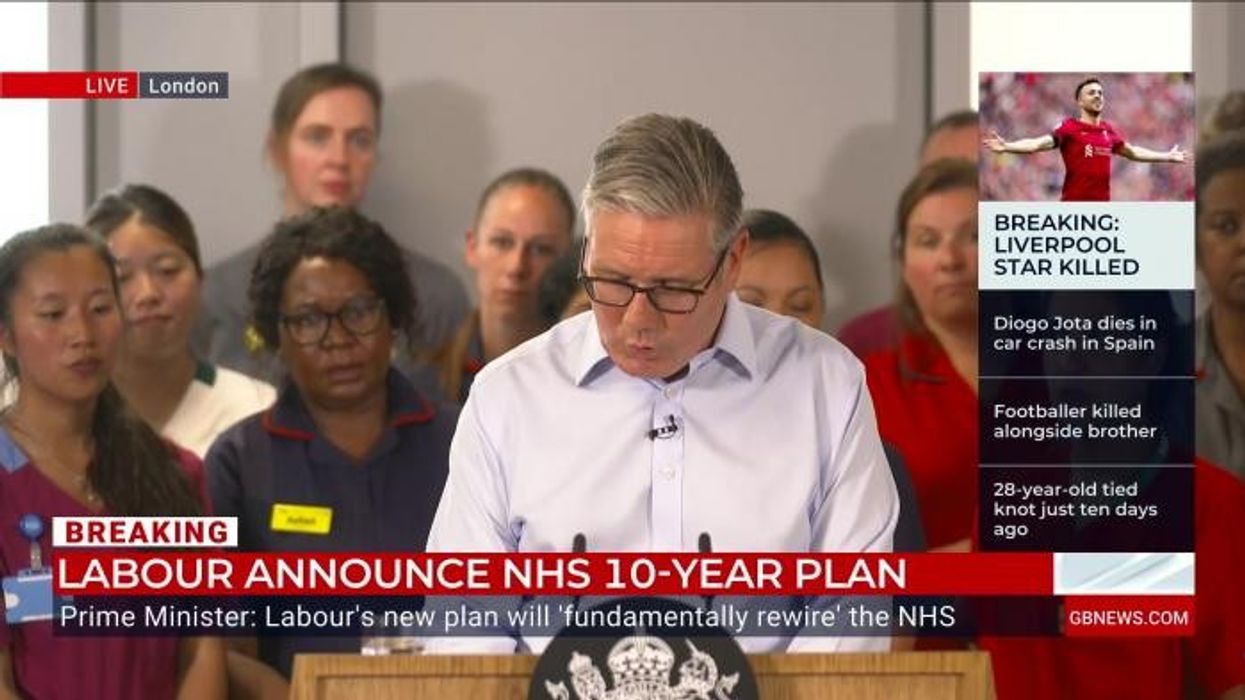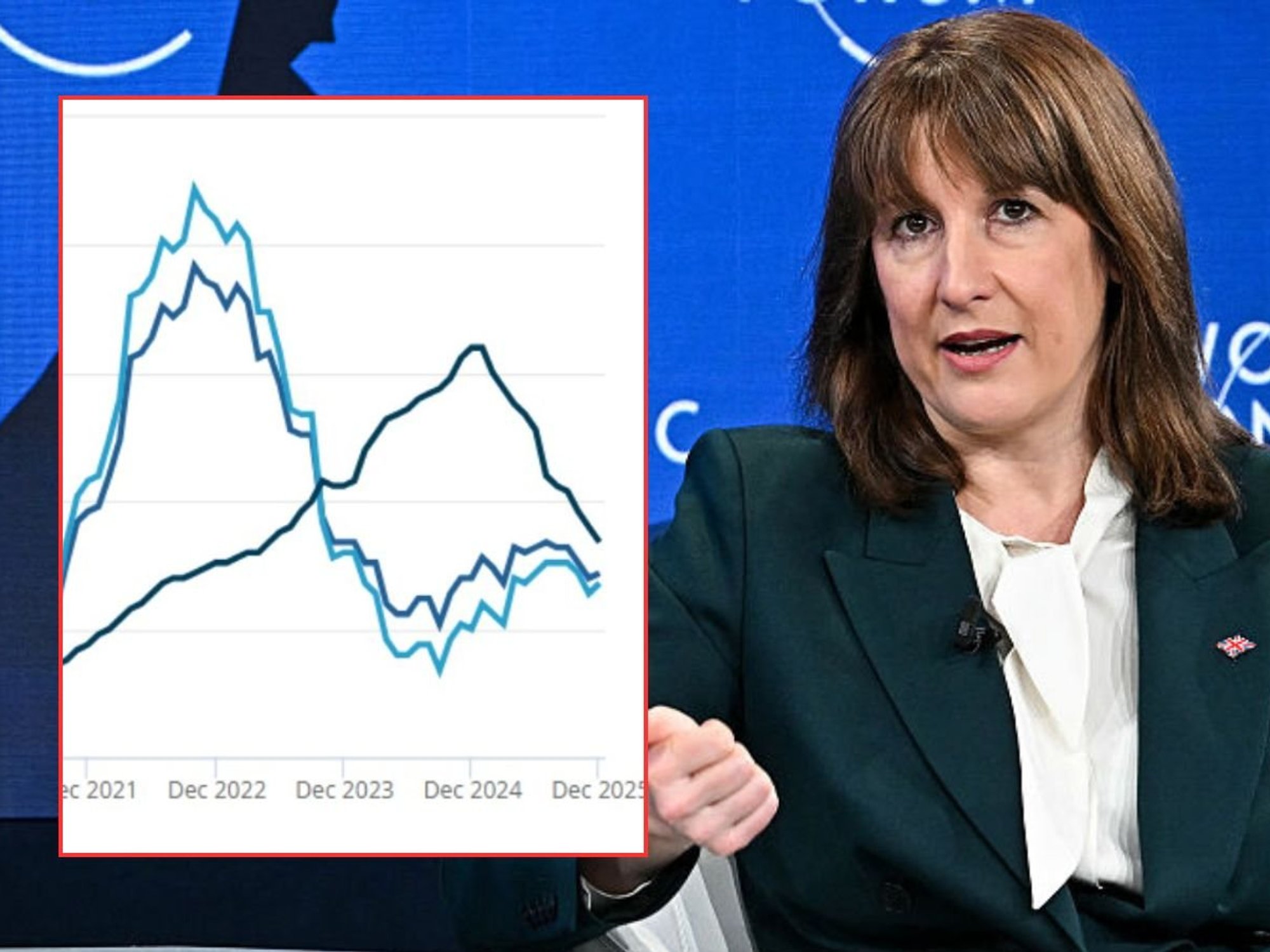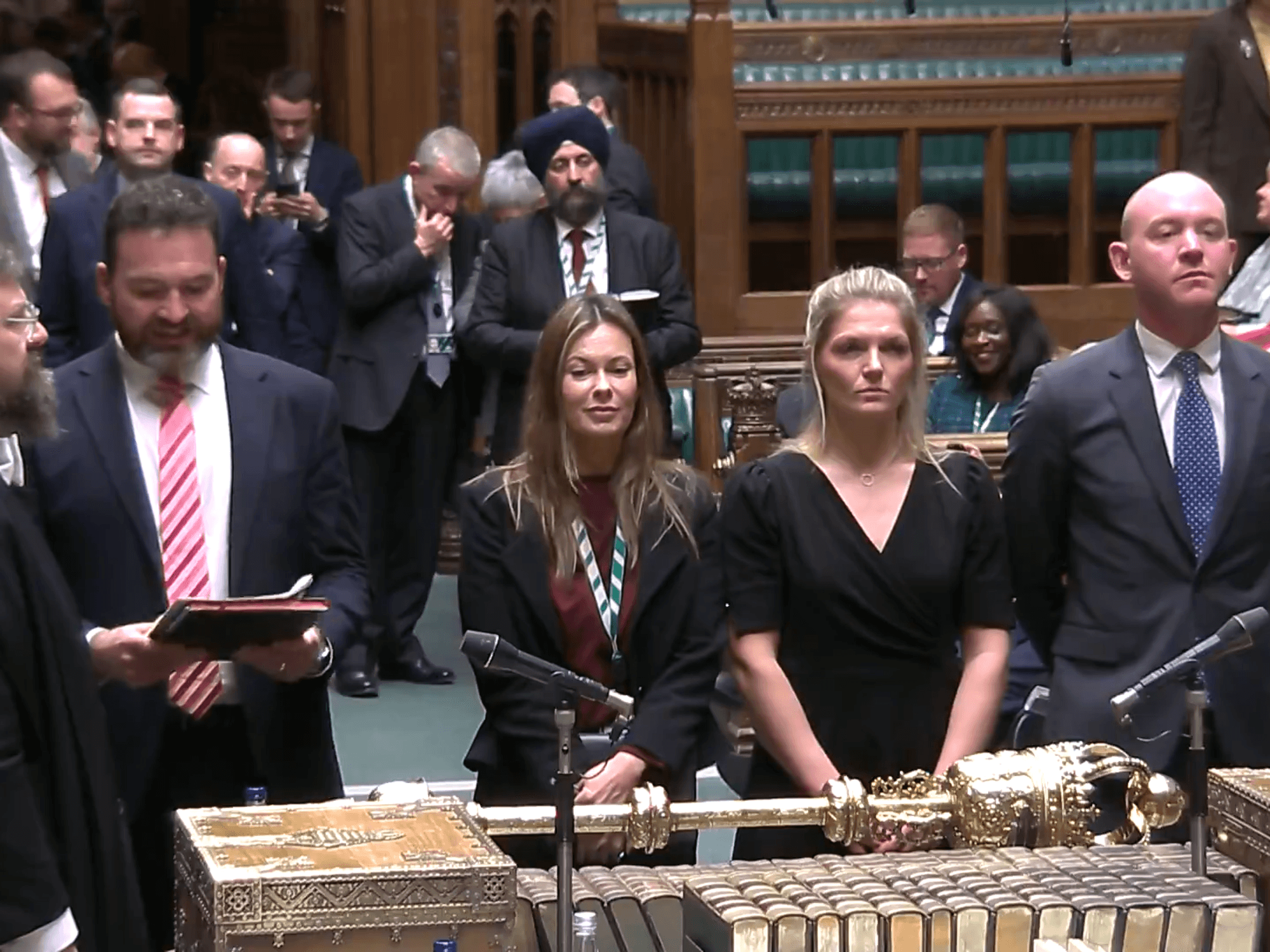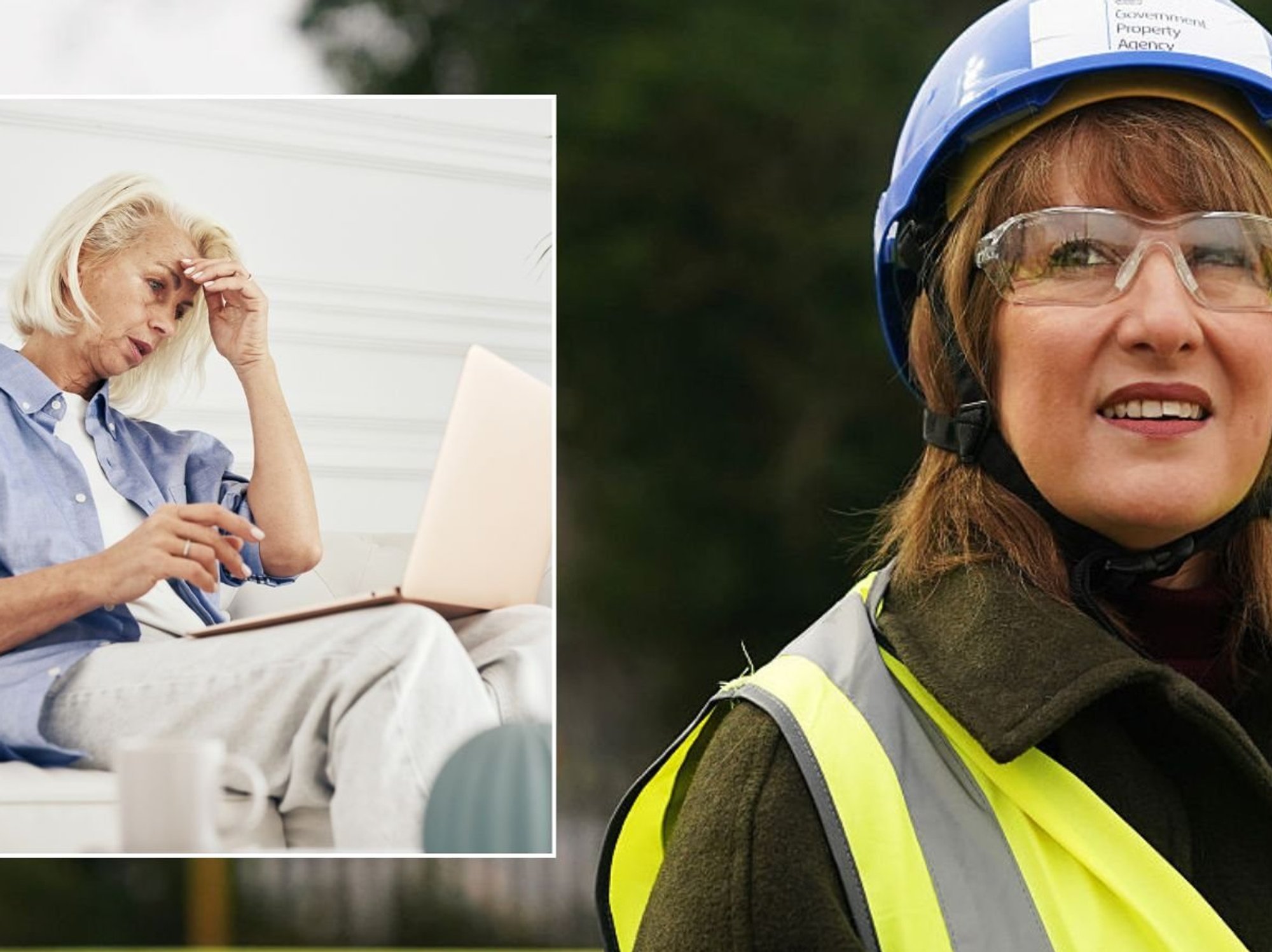I know the uncomfortable truth about benefits. As a doctor, I have seen it up close - Renee Hoenderkamp
This was a difficult write, and it will be a difficult conversation as a nation, but it must be had
Don't Miss
Most Read
Trending on GB News
Labour are facing their most difficult challenge; tackling that which must be tackled, but no one is brave enough to do. I see the benefits issue as similar to obesity.
Because the majority of Britons are overweight, they don’t want to face the uncomfortable truth about obesity and as a record 54.2 per cent of people (36 million) now live in households which received more in benefits than they contributed in taxes, anyone who tries to change this is attack as heartless, wicked and beyond the pale.
But tackle it, someone must. If we are to survive as a nation. We cannot continue to sign 1000 new applicants for benefits every single day. Eventually, there will be no one actually working to pay the bill, and the bill is spiralling.
By the end of the decade, just five years from now, the sickness benefit bill will be £100billion.
That’s a benefit bill bigger than the GDP of Slovakia, El Salvador, Croatia, Serbia, Jordan and Bahrain. In fact, if our benefits bill at the end of the decade were a country, we would place 72nd in the world for GDP!
View it another way, and it is more than the defence budget and what we spend combined on Police, prisons and courts.
And whilst we must always be compassionate and have a safety net for those who truly cannot work, the welfare bill is in danger of drowning us with its weight and whilst those still relying only on their own hard work to survive are swimming hard, they are being dragged down and soon their collective head will go under water.
I am a doctor, I get a very close-up view of those who can work and do, those who find it very hard to work but still do and those who can work but don’t.
And the latter do exist and have grown and grown, particularly since the pandemic, when we showed people who didn’t much like their work, that staying at home and being paid, even if slightly less, was better than getting up early, making a commute and coming home late and tired.
 I know the uncomfortable truth about benefits. As a doctor, I have seen it up close - Renee Hoenderkamp |
I know the uncomfortable truth about benefits. As a doctor, I have seen it up close - Renee Hoenderkamp | Getty Images
In a way, we must blame the furlough scheme and a change in the societal contract. That contract used to be that you put in more than you took out if at all within your power, and when you did have to take out, it was the minimal amount for the minimal time.
Sadly, we have reached the opposite situation, and we are a society of takers, not givers. Like it or not, those left giving are getting resentful.
Every politician seems to agree that the welfare bill is unsustainable, and the focus of the critics seems to have fallen solely on PIP, Personal Independence Payments. And you can see why.
If someone gets the enhanced mobility and daily living allowance, those are extra payments on top of any other benefits that are getting between £103 and £187 a week.
At the top level, that is an additional £9,724 a year of tax-free money, which a higher-rate taxpayer would need to earn £18,000+ to secure.
And this is what I think is forgotten: that all of the estimated £100billion that will be needed by 2030 relies on someone working and paying tax.
Now it is important to say that many people earning PIP are indeed employed, which is great. This, however, raises another question. Let's think about a fictitious recipient. Someone who lost the lower part of their leg in an accident.
They wear a prosthetic, but despite the raw deal that life certainly threw at them, they work full time, they have a partner, children and even play senior-level sport.
Should they get the PIP mobility allowance? Many people feel it is a right, even if they have done as well or better than the average working person.
I would argue that no taxpayer money is a right, and what should be a right is for society to expect everyone, whatever life throws at them, to try and be completely self-sufficient, and when they are, the state should step away. It is clear that we need to have some honest and difficult conversations.
So, we are at a place where Labour have done what many believed was the unthinkable and introduced a parliamentary bill to reform the Welfare system. To be honest, the Bill is pathetic.
To suggest that £5billion will be saved over this parliament is to accept that the total bill will rise from the current £64billion to £95billion instead of £100billion.
And yet even this is a step too far for Labour back-benchers and Keir Starmer, under pressure, has been forced to make the inevitable concessions that we knew he would to placate the 122 Labour rebels that have signed an amendment designed to embarrass him.
It is important to point out that approximately 200 MPs have a majority smaller than the number of people on PIP in their constituency.
Even without the concession, the next five years will see a 55 per cent rise driven mostly by a surge in PIP (3.7 million people now claim PIP) and working age sickness and disability payments.
It would be remiss of me, however, to ignore the drive amongst the under-35s to apply due to ‘mental health’ conditions.
Almost 70 per cent of new applicants under 35 are for mental health. And this includes anxiety and depression, ADHD, OCD, PTSD, and severe depression.
In fact, anything that one can deem as “causing difficulty doing certain everyday tasks or getting around and expecting the difficulties to last for at least 12 months”. This is a disaster as almost all young people I meet feel anxious, depressed or ‘neurodiverse’.
In my humble opinion, having lived a normal life of partners, children and with up and downs, many young people now expect to have a life full only of joy and happiness and cannot deal with what are in fact normal life events that will be healed only by time, friends and work that takes away the hours idling that being at home allows.
I know it won’t be popular, but we need to restore resilience in our young people and children. They need to know that life is often hard, joy happens fleetingly and normal things hurt; relationship break-ups, losing a job, falling out with a friend, reading something you don’t agree with.
This is not mental health that requires the state safety net; in fact, work is proven to be the best treatment for poor mental health.
Importantly, none of this is being replicated in equivalent societies in the West, we are an outlier, spending more on disability than almost any other advanced economy. We absolutely deserve the nickname of sick man of Europe.
If this continues, without any growth in the economy, without any incentive to work hard and be self-sufficient, those who are self-sufficient will continue to leave.
A millionaire leaves the UK every 435 minutes and leaves behind a hole in the tax receipts that 55 new working people would have to fill, and in reality, the number of working people is going down.
I know so many hard-working taxpayers who have left or who are looking to leave. Imagine this continues, there would ultimately be no working people - is this what they want? Perhaps, because then they would ‘have’ to usher in universal basic income. Oh no, that won’t work either because there will be no tax receipts to pay it!
We need to get back to the days when men who queued up at the unemployment exchange for benefits covered their faces with a newspaper – not literally, of course, but figuratively.
That work is a duty, and benefits really are a safety net. I say all of this, accepting that some people can never ever work. That is fine, that is what the safety net is for, but it cannot be true that half of the households in the UK truly need to rely on the safety net.
This was a difficult write, and it will be a difficult conversation as a nation, but it must be had and one that Keir Starmer will never be able to meaningfully have.











